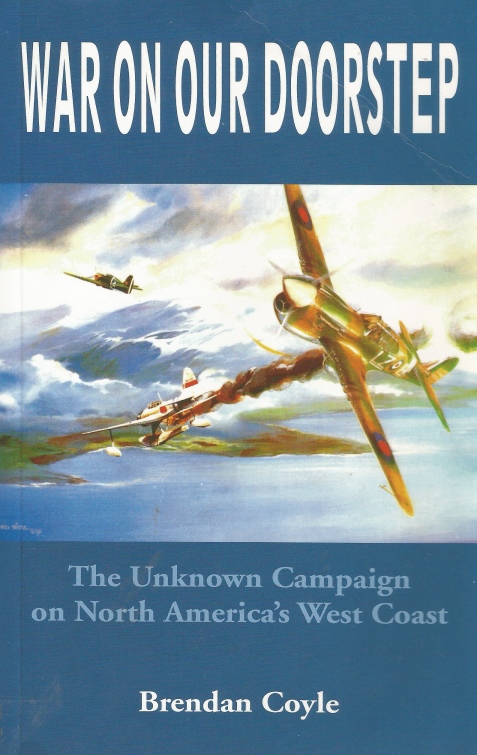

War On Our Doostep

240 pages, 2002, numerous photos.
This is the single best book I have read about how the West Coast was directly involved in World War II and how the Japanese made far more numerous attacks on that area than any other book I have read indicated.
It all began on June 20, 1942 when a Japanese sub, I-26 attacked a lighthouse on Vancouver Island. What follows is a good number of specific attacks against shipping off the West Coast on North America and the ships sunk by Japanese submarines. It's the first book I've read on the subject (and I've read many books on it) that goes into specific detail about such attacks.
At one time there were nine Japanese submarines stationed off the coast near virtually ever major American city located there. The author speculates that Japanese merchant ships put spies ashore and that these spies talked to persons of Japanese ancestry along the coast and learned information which could be used by the Japanese. [Note, though, that this part is speculation only.}
There was even a plan for the nine subs to shell the cities on Christmas Eve but the attack was called off. The book goes into detail on the various American ships that were sunk off the West Coast by Japanese subs. Also covered is how all this relates to the Japanese invasion of the Aleutian Islands. It also covers just how poorly the United States West Coast was prepared by any kind of war-related actions.
The book also goes into how poor the communication was between the U.S. government and the Canadian government which, basically, there was absolutely no good reason for. It was wartime and the two governments should have been working very closely together.
The author also says there was some justification for the internment of the persons of Japanese ancestry once the war was under way. It also discusses how the Canadians carried out their own internment program.
There's a section which shows how racist the American army was at this time in relation to black soldiers and what they were deemed fit to do (which was not to serve as front-line troops, for example.)
There's a lot in this book that I had not heard of previously and I think it's a very valuable book to have in one's collection.
Main Index
Japan main page
Japanese-American Internment Camps index page
Japan and World War II index page
|